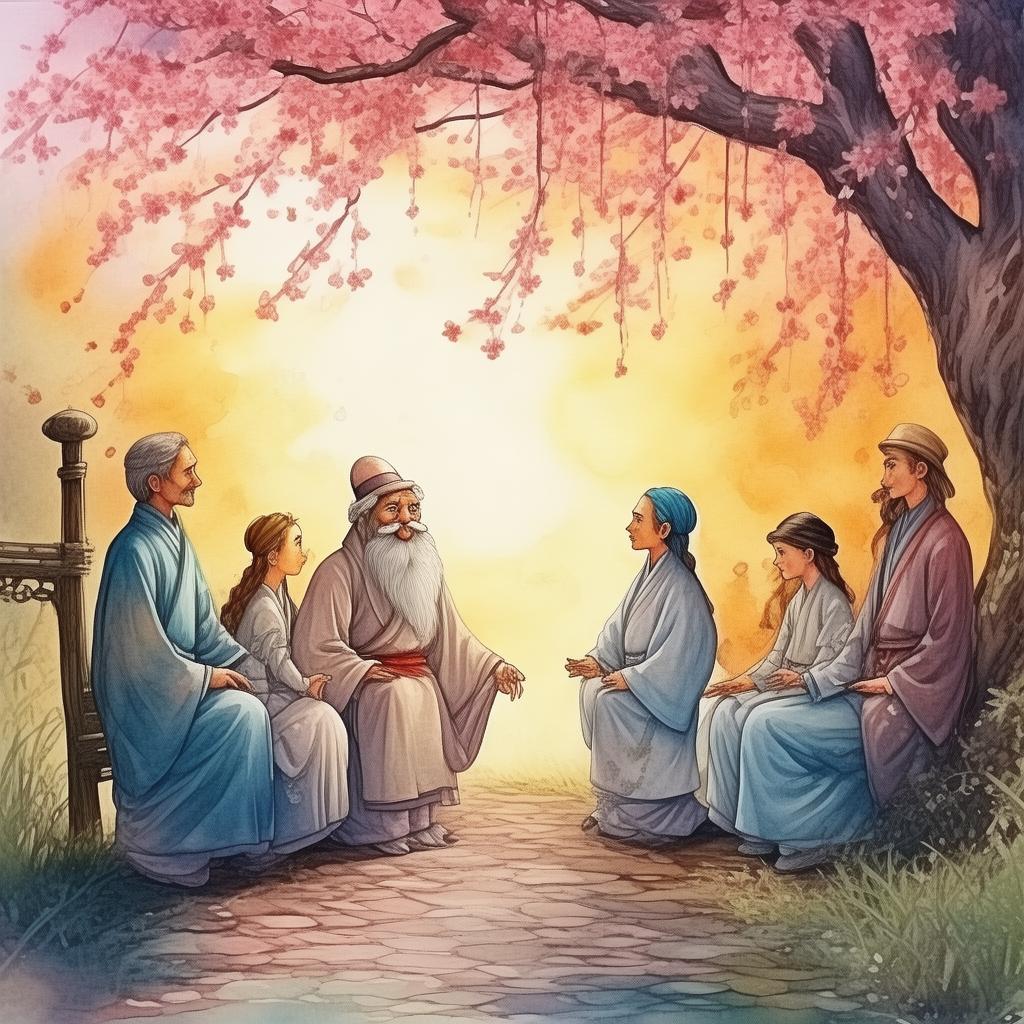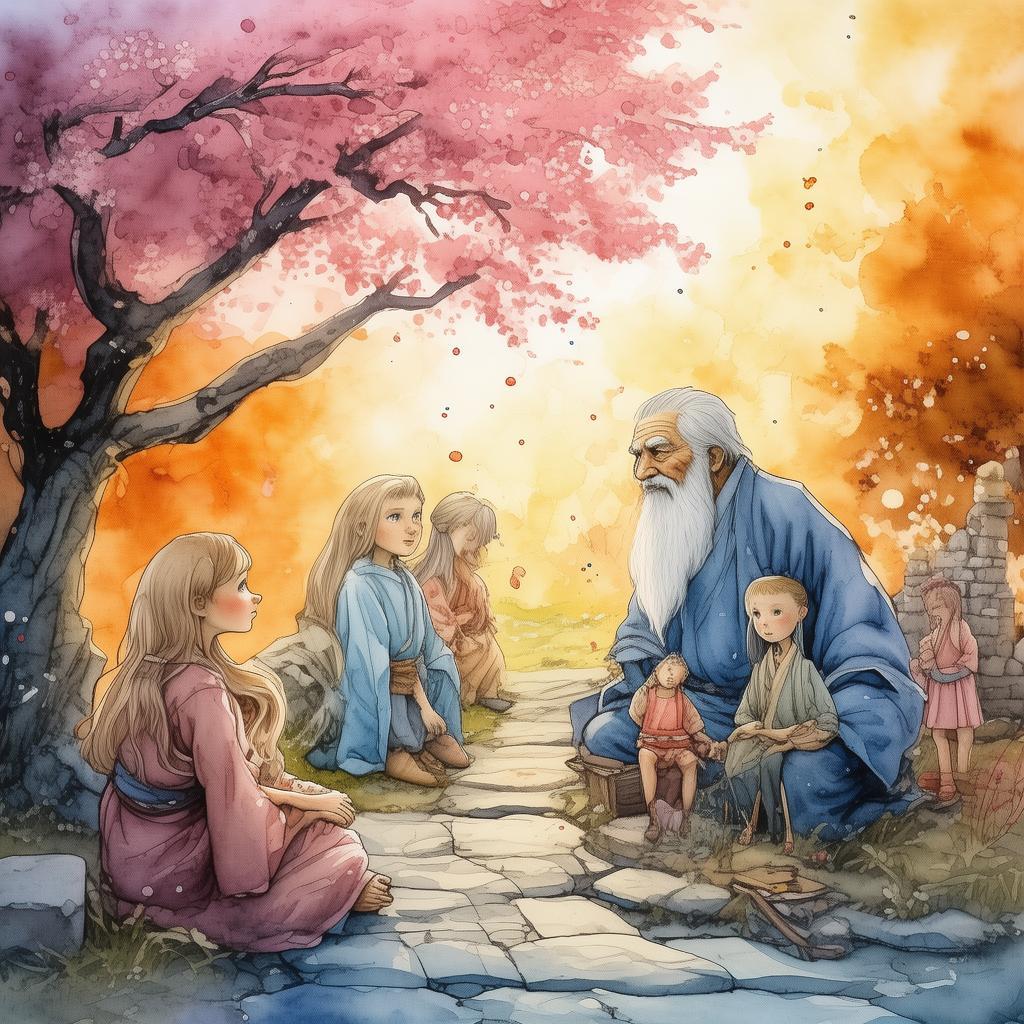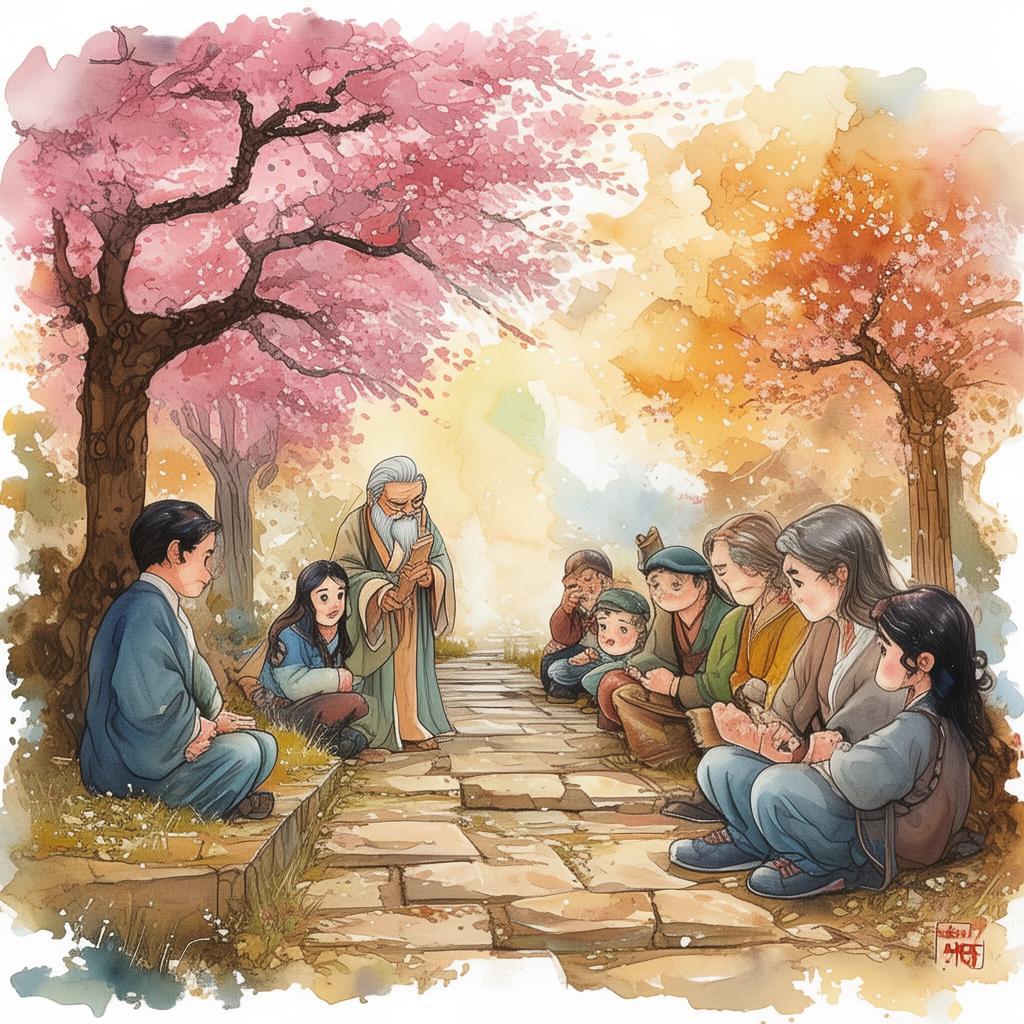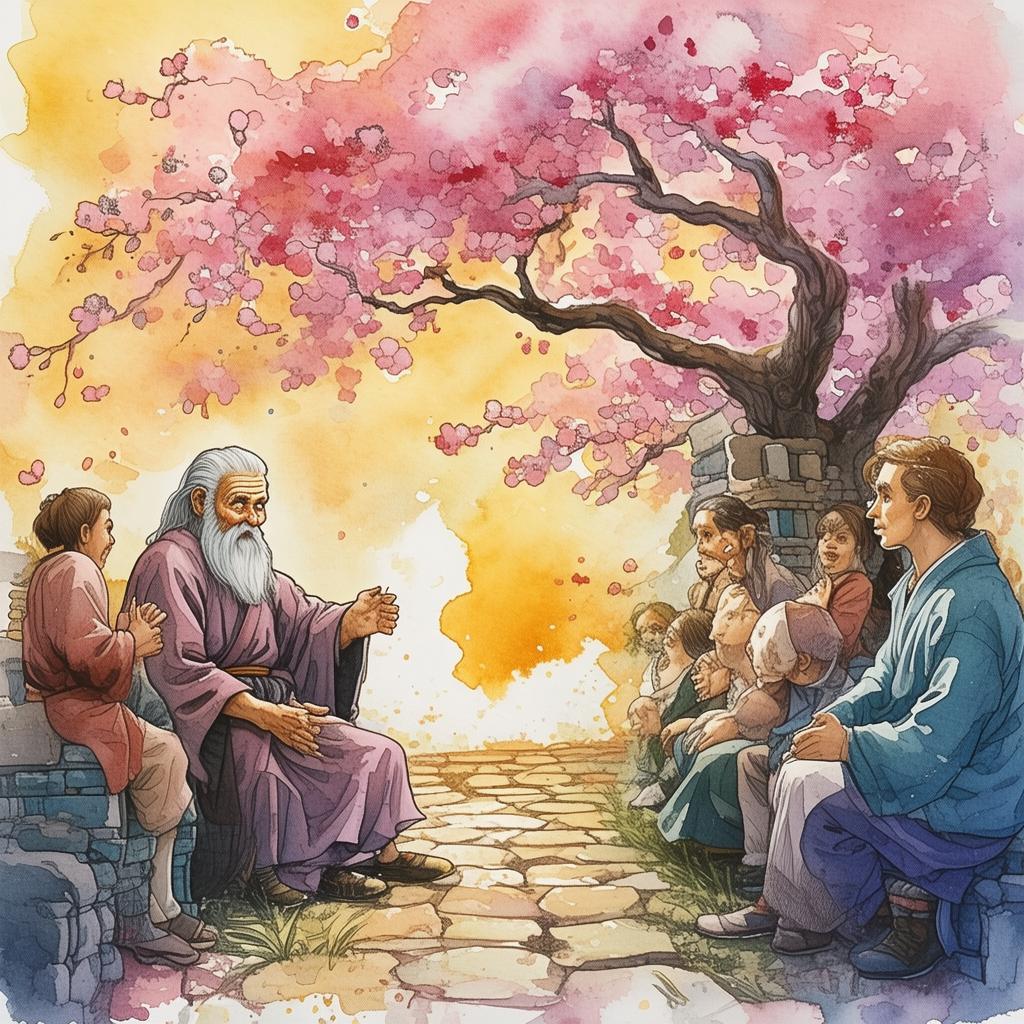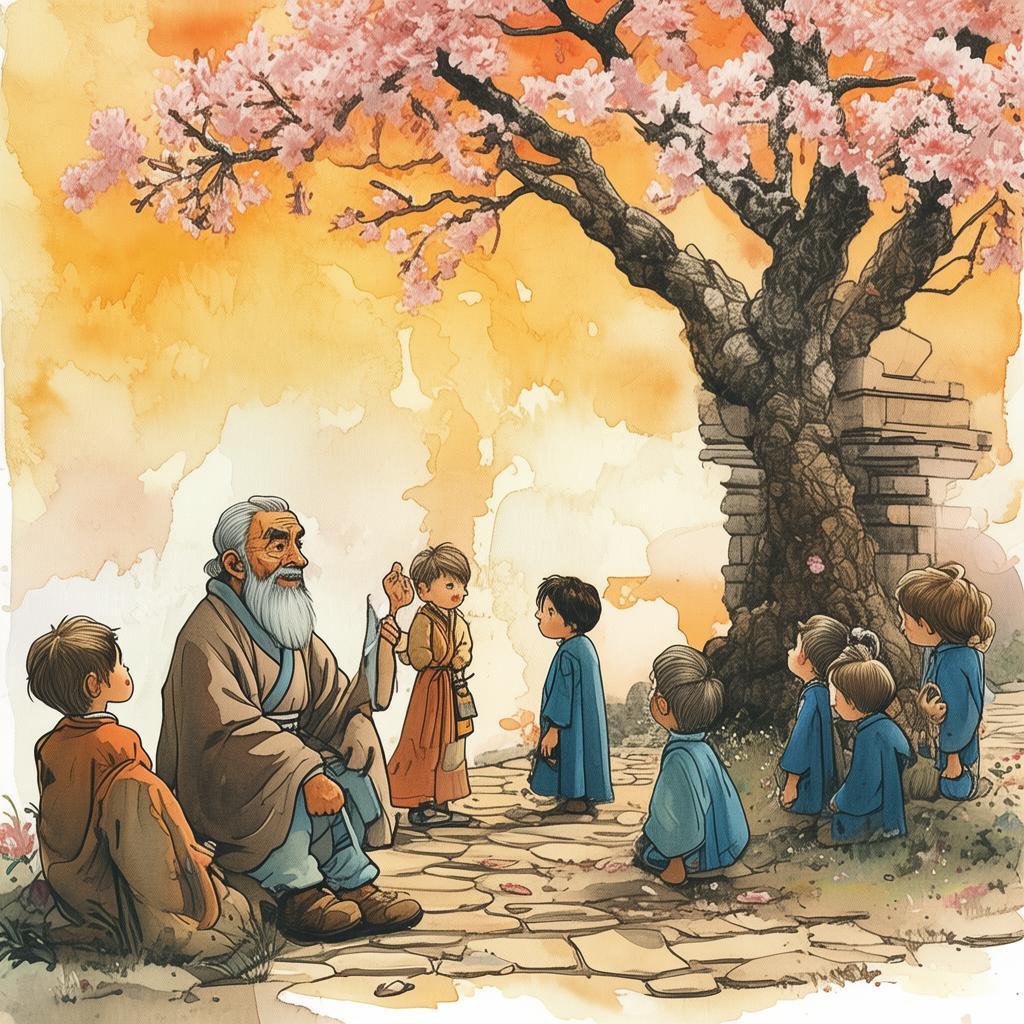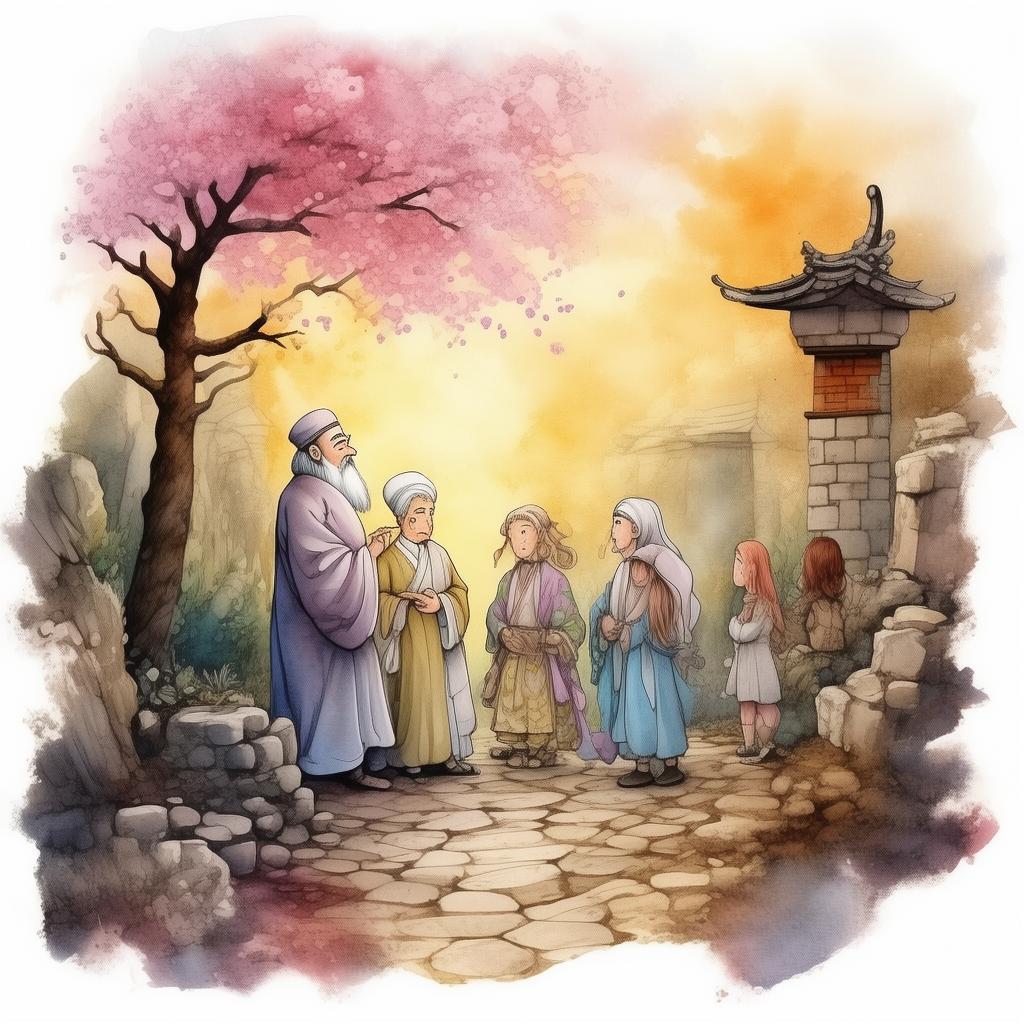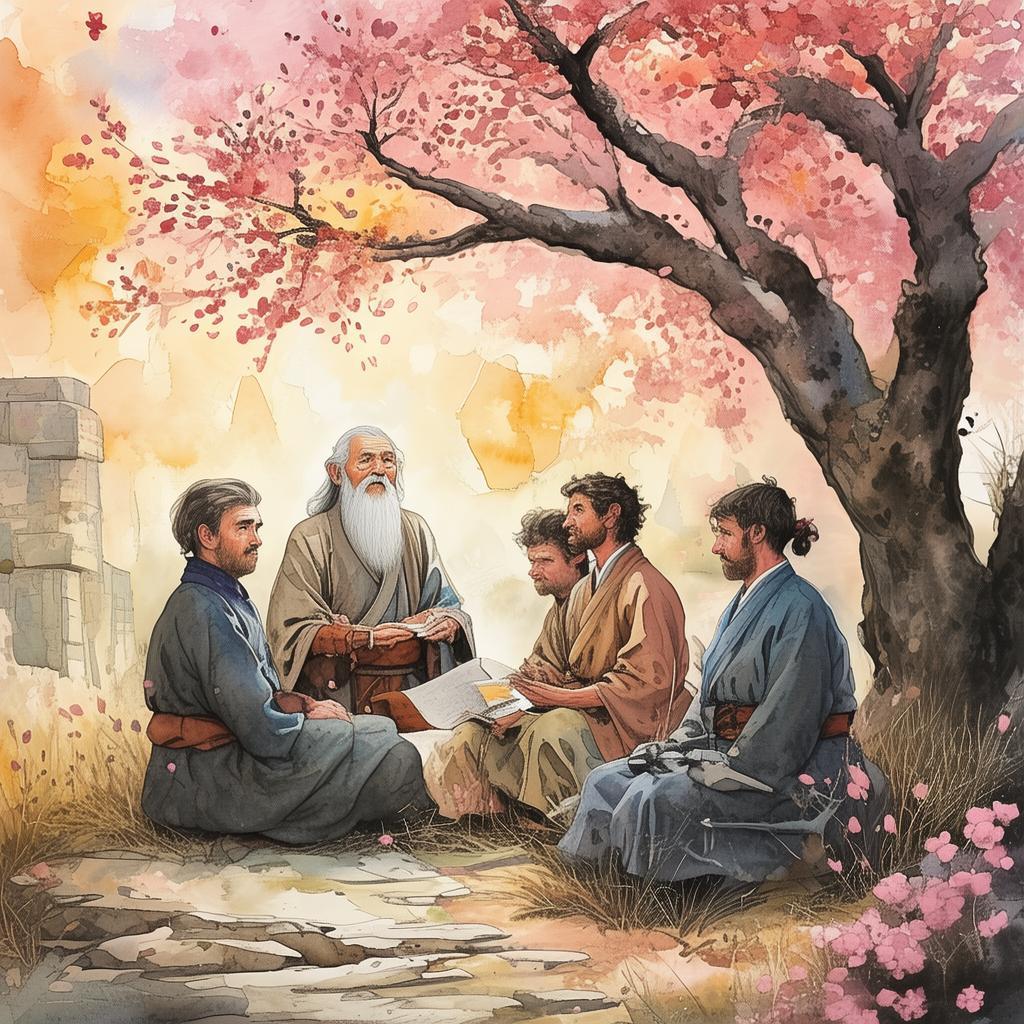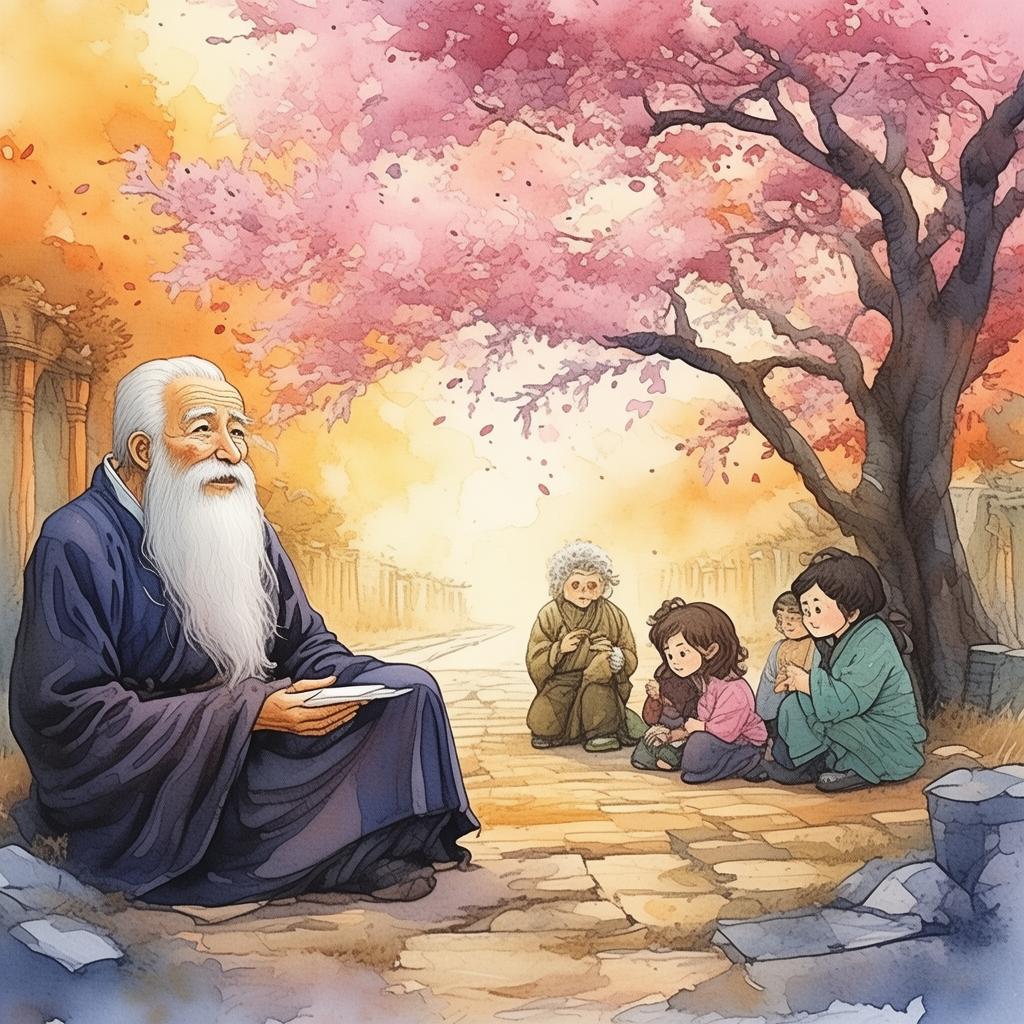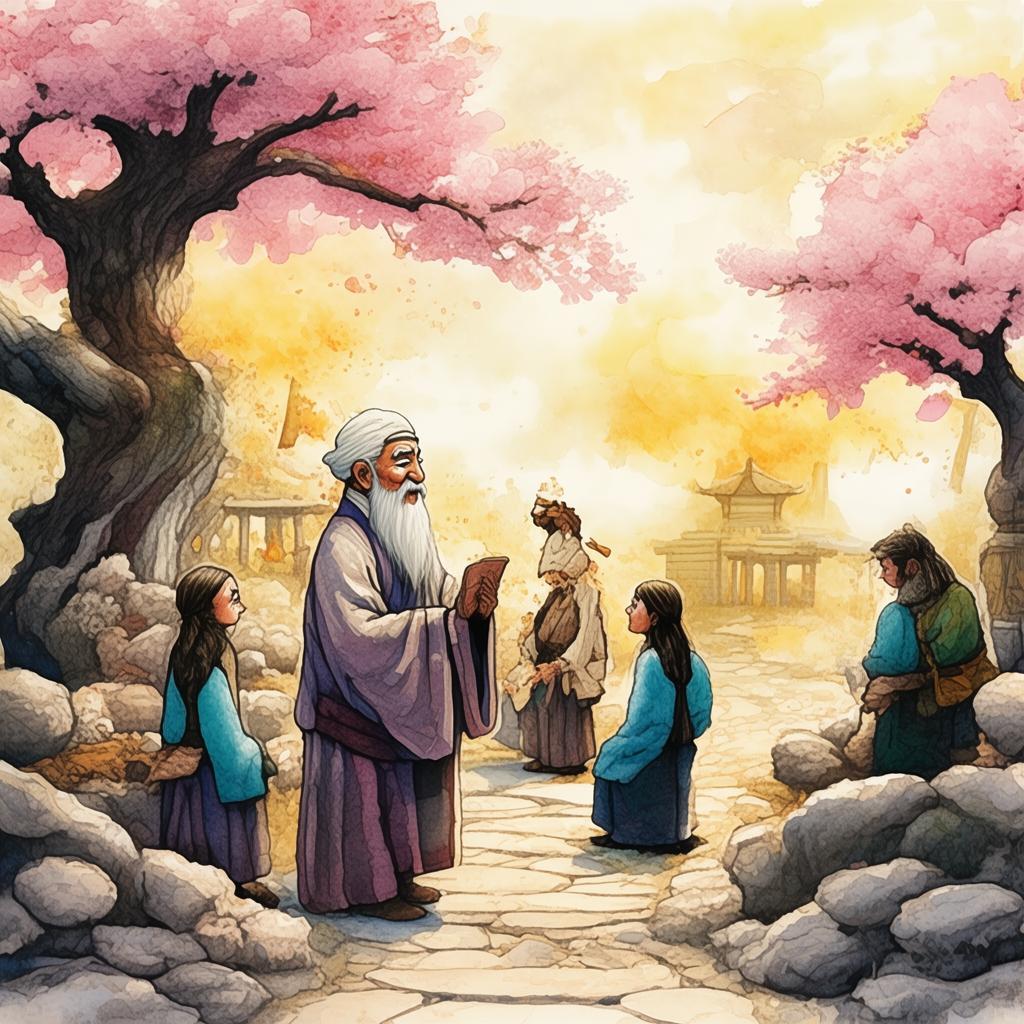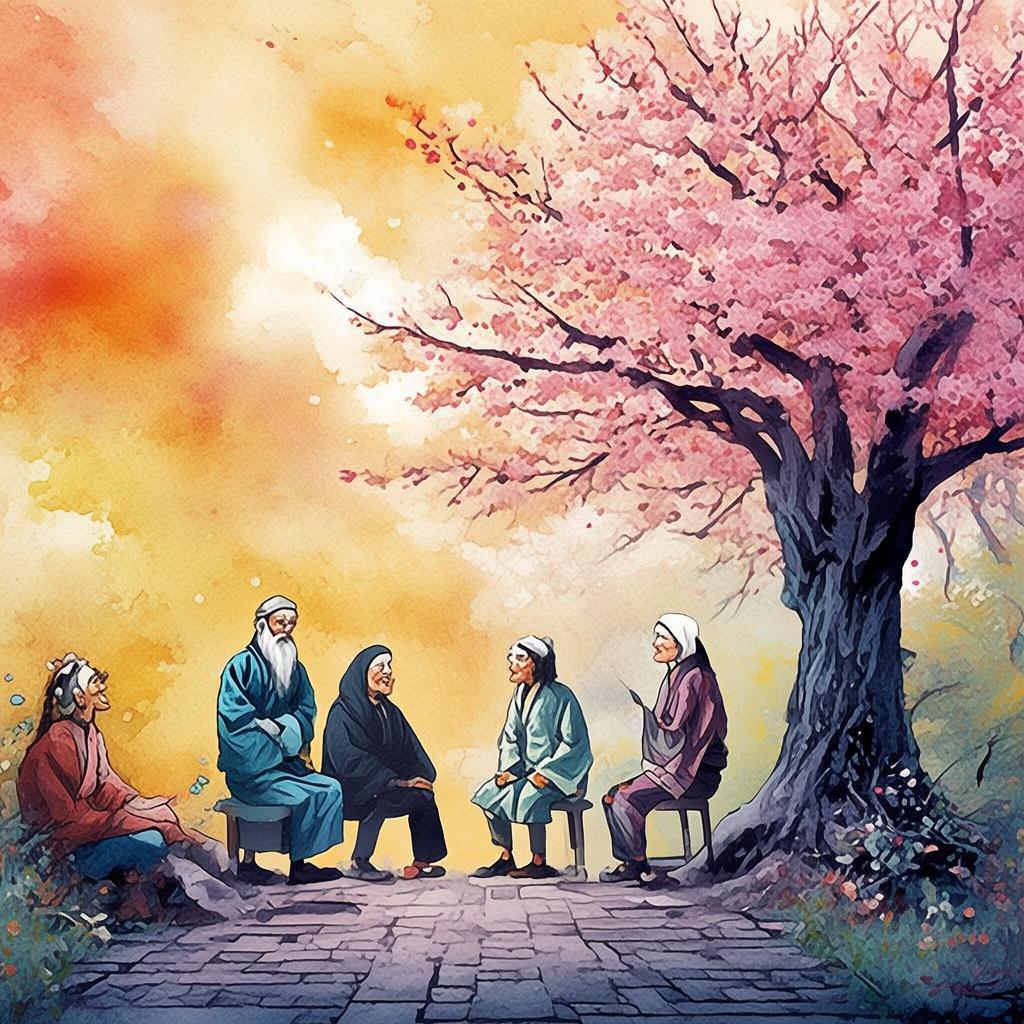The Evening's Bloom: A Tale of Dusk's Lament
The moon hung low in the sky, casting a silver glow over the ancient town of Jingzhou. The air was thick with the scent of blooming peonies, their vibrant hues a stark contrast to the impending night. In the heart of this serene village, there lived a young girl named Liang, whose heart was as delicate as the evening's bloom that adorned her hair.
Liang was known for her gentle nature and her love for the evening's bloom, which she believed held the essence of life's fleeting beauty. She spent her days tending to the blooming flowers, speaking to them as if they were her closest companions. But as the days grew shorter, a sense of unease began to settle over the village. The evening's bloom, which usually bloomed so vibrantly, seemed to wither earlier than ever.
One evening, as Liang wandered through the fields, she heard a haunting melody that seemed to come from the very earth itself. It was the song of Dusk's Lament, a ballad that spoke of love lost and hearts broken. Intrigued, she followed the melody to its source, a small, dilapidated cottage nestled at the edge of the forest.
Inside the cottage, an old man sat by a flickering candle, his eyes filled with sorrow. He introduced himself as Master Hua, a once-famous minstrel who had lost his voice and his purpose in life. The melody Liang had heard was his lament, a tribute to the love he had once known.
As they spoke, Master Hua shared his story. Many years ago, he had fallen in love with a woman named Mei, whose beauty was as captivating as the evening's bloom. They had promised to be together forever, but fate had other plans. Mei had been betrothed to a prince, and the wedding was fast approaching.
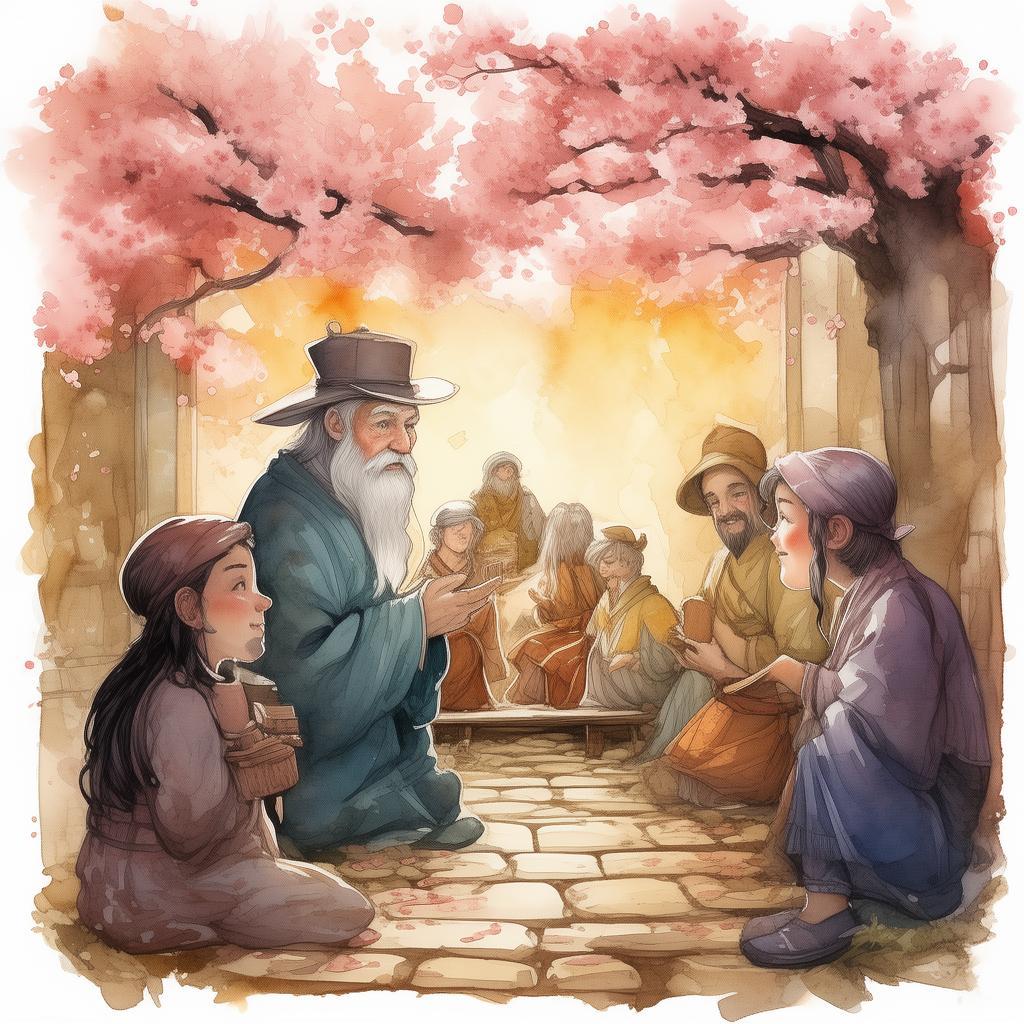
On the night of the wedding, Mei had confided in Master Hua that she was not willing to marry the prince. She had chosen love over status, but her courage had come too late. The prince, a man of cold heart and iron will, had her captured and locked away, leaving Master Hua to wander the world in search of her.
Liang listened in silence, her heart heavy with sorrow. She realized that the evening's bloom was more than a symbol of beauty; it was a reminder of the fragility of love and life. As the sun dipped below the horizon, casting a golden glow over the fields, Liang knew she had to act.
The next day, Liang approached the prince, a man known for his cruelty and ambition. She offered him the evening's bloom, explaining that it held the power to grant a wish. The prince, intrigued by the bloom's beauty, agreed to listen to Liang's request.
Liang asked the prince to release Mei, explaining that love was worth more than any throne or riches. The prince, touched by Liang's courage and the beauty of the evening's bloom, agreed to her request. Mei was freed, and she and Master Hua were finally able to be together.
The village celebrated Liang's bravery and the restored love between Master Hua and Mei. The evening's bloom, which had seemed to wither, now flourished once more, its beauty a testament to the power of love and sacrifice.
Word of Liang's bravery spread far and wide, inspiring many to cherish the fleeting moments of their lives. The tale of Liang and the evening's bloom became a ballad, a reminder that even in the darkest of times, love can shine brightly.
Years later, Liang's name was forgotten, but the story of the evening's bloom lived on. It became a symbol of love's enduring power, and the phrase "the evening's bloom" took on a new meaning. It was no longer just a beautiful flower; it was a representation of the fleeting beauty of love, the fragility of life, and the courage to fight for what one believes in.
And so, the idiom "the evening's bloom" was born, a reminder that life is short, but love can last forever.
✨ Original Statement ✨
All articles published on this website (including but not limited to text, images, videos, and other content) are original or authorized for reposting and are protected by relevant laws. Without the explicit written permission of this website, no individual or organization may copy, modify, repost, or use the content for commercial purposes.
If you need to quote or cooperate, please contact this site for authorization. We reserve the right to pursue legal responsibility for any unauthorized use.
Hereby declared.
